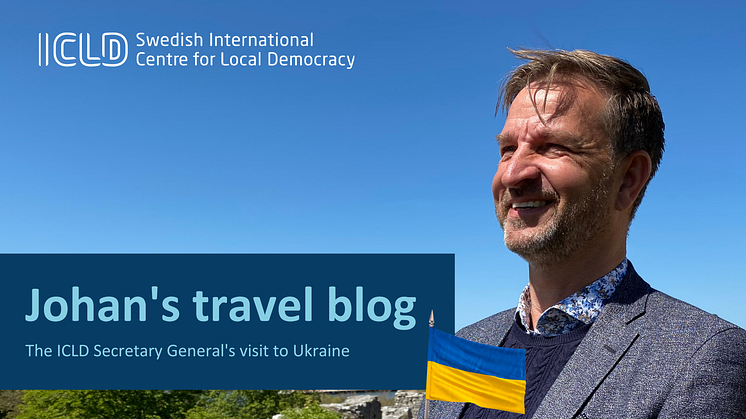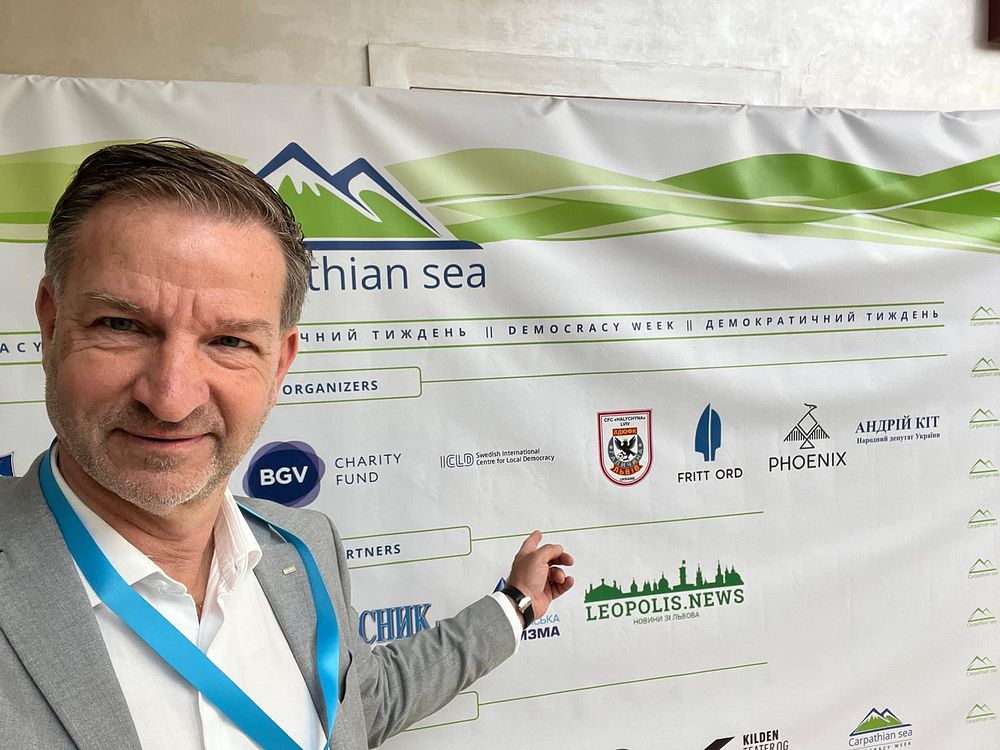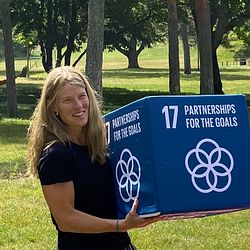
Blogginlägg -
A Journey in the Name of Democracy – ICLD in Ukraine - part 2
The ICLD Secretary General is travelling to Ukraine to attend the seminar Carpathian Sea Democracy Week 2025 in Truskavets, near Lviv. He will be blogging throughout his journey — a journey both forward and backward in time. This is his second blog post, written after arriving in Ukraine and attending the first day of the seminar.
A night bus to the border
The bus from Krakow left at 10.50 p.m. After a long day, the final part of the journey began – through the Polish countryside to the Ukrainian border.
There are long queues at the border crossing, in both directions. Surprisingly many buses and people are heading into Ukraine. There are many reasons for crossing. Some are going to monitor the developments of the war, with clear embroidered “press” labels on their arms. Notably, these labels are attached with Velcro – perhaps for situations where journalists are not welcome, I reflect a bit philosophically.
Solidarity across borders
Many are visiting relatives they haven't seen since the war began – relatives who have travelled from troubled parts of Ukraine to meet them in Lviv. Others are bringing important supplies. And then there are people like me – here for a conference or invited for an exchange. No one is travelling for a holiday. No one is a tourist. That, in itself, sends a message. Everyone travelling is doing so as an act of solidarity – whether with strangers or with close friends or family.
I didn’t get much sleep that night. Partly because I was thinking about everything I was seeing and experiencing – but also because the passport control took a long time on both sides. I suppose it’s the limited border crossings, now that the airspace is closed, that cause the long queues.
Normality as resistance
Once in Truskavets, I’m struck by the sense that people here are living their lives as normally as possible. The horrors of war seem confined to another part of the country, and resistance is shown not by fear of Russia’s military power, but by continuing daily life – going to work, shopping – simply living as usual. This is usually a lively tourist town, but the absence of tourists is striking. Many market traders stare blankly ahead, with no customers for the goods they would normally offer to visitors.
I’m staying in a nice family-run hotel, but I’m one of very few guests. They offer me a slightly better room – they have no one else to rent it to anyway. I move into it, but I do so with a sense that perhaps I shouldn’t – when so many have lost their homes...

Johan attending Carpathian Sea Democracy Week 2025
Democracy in times of war
At the first day of the seminar, I’m confronted with the harsh realities of war – many of the lectures focus on defence, energy issues, and water supply in heavily affected areas.
I take part in various discussions and a panel, where I have the opportunity to highlight the importance of local democracy in times like these. Decentralisation, citizen participation, openness and transparency are the foundations of resilience. But the exchanges between Swedish and Ukrainian municipalities offer more than experience-sharing – they build strong bonds of friendship. It sends a message: you are not alone in difficult and challenging times.
When I meet ICLD’s mentor Maria Tuzyk and several of the panel participants in the afternoon, it still feels meaningful to show that ICLD is here because we believe in the Ukrainian people. We believe in a positive future and want to support the building of one that includes everyone. Tomorrow, we have an exciting panel with participants from Sweden (joining online) and Ukraine – with a special focus on the importance of international municipal partnerships. Thank you for joining me on this journey in the name of democracy and humanity.
/Johan Lilja


